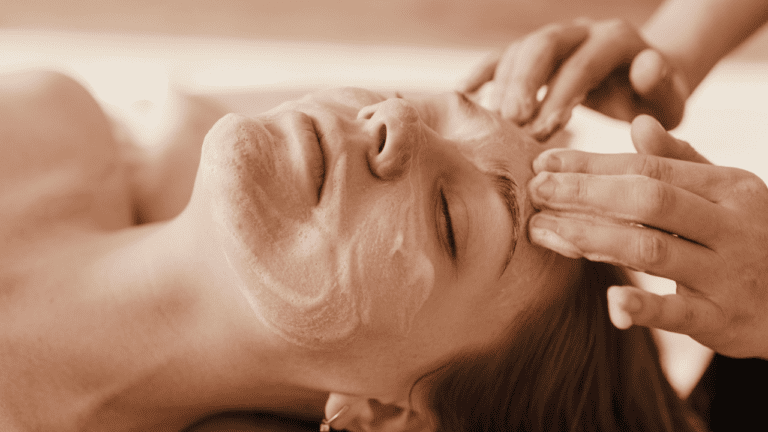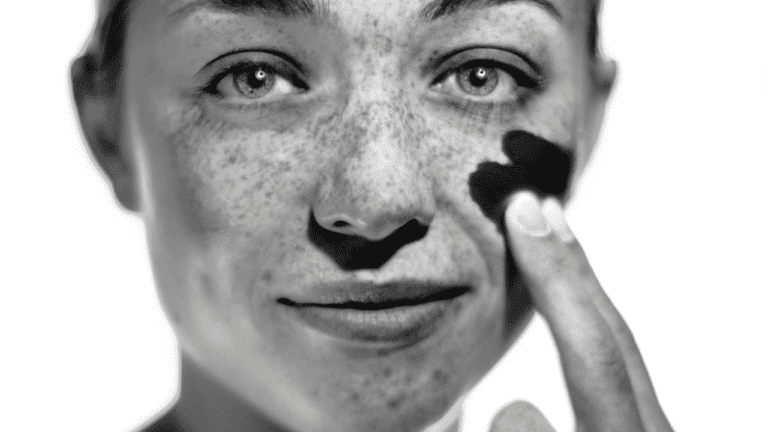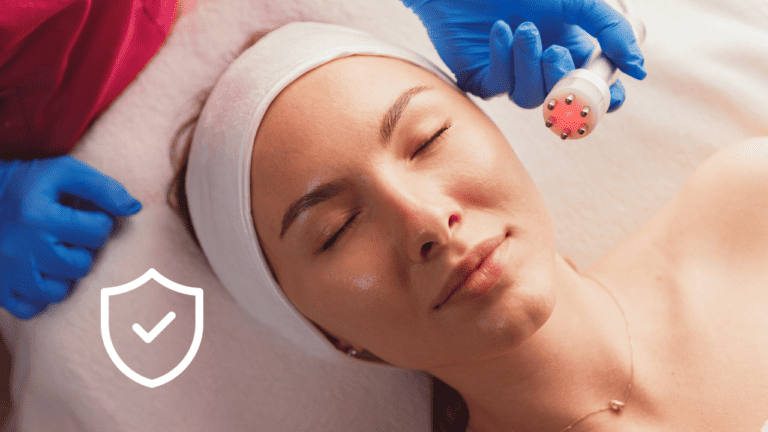Sulfur is a naturally occurring mineral that has been used in skincare for centuries. It has been touted for its ability to treat a variety of skin conditions, including acne, rosacea, and eczema. One of the most common claims about sulfur is that it can exfoliate the skin, but is there any truth to this?
Many skincare products that contain sulfur are marketed as exfoliating treatments. The idea is that sulfur can help to remove dead skin cells and unclog pores, leaving the skin looking brighter and smoother. However, the science behind this claim is not entirely clear. While sulfur does have some exfoliating properties, it is not as effective as other exfoliants like alpha-hydroxy acids (AHAs) or beta-hydroxy acids (BHAs).
Despite this, sulfur remains a popular ingredient in many skincare products. So, what is the truth about sulfur and its ability to exfoliate the skin? In this article, we will take a closer look at the science behind sulfur in skincare and explore its potential benefits and drawbacks.
Key takeaways
- Sulfur has some exfoliating properties, but it is not as effective as other exfoliants like AHAs or BHAs.
- Sulfur is commonly used in skincare products to treat a variety of skin conditions, including acne, rosacea, and eczema.
- While sulfur can be an effective treatment for some people, it may not be suitable for everyone and can cause side effects like dryness and irritation.
The Science of Sulfur in Skincare

Sulfur has been used in skincare for centuries due to its many benefits. It is a natural mineral that is found in volcanic areas and hot springs. Sulfur is known for its keratolytic, antimicrobial, and antibacterial properties, which make it an effective ingredient in many skincare products.
Sulfur’s Keratolytic Effects
Sulfur is a keratolytic agent, which means that it helps to exfoliate the skin. It works by breaking down the bonds between dead skin cells, allowing them to be easily removed from the surface of the skin. This process helps to unclog pores and prevent the formation of acne. Sulfur is also effective in treating other skin conditions such as eczema and psoriasis.
Antimicrobial and Antibacterial Properties
Sulfur has both antimicrobial and antibacterial properties, which make it effective in treating acne. It works by killing the bacteria that cause acne, reducing inflammation, and preventing new acne from forming. Sulfur is also effective in treating other skin infections such as rosacea and seborrheic dermatitis.
Sulfur’s Role in Collagen Production
Sulfur plays an important role in collagen production. Collagen is a protein that is found in the skin, bones, and other connective tissues. It is essential for maintaining the structure and elasticity of the skin. Sulfur helps to promote collagen production, which can help to reduce the appearance of fine lines and wrinkles.
In conclusion, sulfur is a powerful ingredient in skincare products due to its many benefits. It is a natural mineral that is effective in treating acne, eczema, psoriasis, and other skin conditions. Sulfur’s keratolytic, antimicrobial, and antibacterial properties make it an effective exfoliant and acne treatment. Additionally, sulfur plays an important role in collagen production, which can help to reduce the signs of aging.
Sulfur for Acne and Skin Conditions

Sulfur has been used for centuries to treat various skin conditions, including acne, rosacea, eczema, dandruff, and seborrheic dermatitis. It is a natural mineral that has antibacterial, antifungal, and anti-inflammatory properties, making it an effective treatment for many skin problems.
Treating Acne with Sulfur
Acne is a common skin condition that affects millions of people worldwide. It is caused by the overproduction of sebum, which clogs the pores and leads to the formation of pimples, blackheads, and whiteheads. Sulfur works by drying out the skin and reducing the production of sebum, which helps to prevent acne breakouts. It also has antibacterial properties that can kill the bacteria responsible for acne.
Sulfur is available in a variety of forms, including creams, lotions, and soaps. It is often combined with other acne-fighting ingredients, such as salicylic acid or benzoyl peroxide, to create a more effective treatment. However, it is important to use sulfur products as directed, as overuse can cause dryness and irritation.
Sulfur’s Efficacy for Rosacea and Eczema
Rosacea and eczema are two other common skin conditions that can be treated with sulfur. Rosacea is a chronic inflammatory condition that causes redness, flushing, and bumps on the face. Sulfur helps to reduce inflammation and redness, making it an effective treatment for rosacea.
Eczema is a chronic skin condition that causes dry, itchy, and inflamed skin. Sulfur helps to soothe the skin and reduce inflammation, making it an effective treatment for eczema. It is often combined with other ingredients, such as urea or lactic acid, to create a more effective treatment.
Sulfur’s Use in Dandruff and Seborrheic Dermatitis
Dandruff and seborrheic dermatitis are two common scalp conditions that can be treated with sulfur. Dandruff is caused by the overgrowth of yeast on the scalp, which leads to flaking and itching. Sulfur helps to kill the yeast and reduce inflammation, making it an effective treatment for dandruff.
Seborrheic dermatitis is a chronic skin condition that causes red, scaly patches on the scalp, face, and chest. Sulfur helps to reduce inflammation and flaking, making it an effective treatment for seborrheic dermatitis. It is often combined with other ingredients, such as salicylic acid or coal tar, to create a more effective treatment.
In conclusion, sulfur is a versatile and effective treatment for a variety of skin conditions, including acne, rosacea, eczema, dandruff, and seborrheic dermatitis. It is a natural mineral that has antibacterial, antifungal, and anti-inflammatory properties, making it an ideal treatment for many skin problems. However, it is important to use sulfur products as directed, as overuse can cause dryness and irritation.
Comparing Sulfur with Other Acne Treatments

When it comes to treating acne, there are a variety of options available. Two commonly used treatments are benzoyl peroxide and salicylic acid. Sulfur is another option that works to exfoliate the skin and reduce acne.
Sulfur vs. Benzoyl Peroxide
Benzoyl peroxide is known for its ability to kill bacteria and reduce inflammation. It is often used in combination with other acne treatments to increase effectiveness. However, it can also cause dryness, irritation, and redness. Sulfur, on the other hand, is a gentler option that can still effectively treat acne. It works by removing excess oil and dead skin cells, which can clog pores and lead to breakouts. Sulfur has also been shown to have antibacterial properties, making it an effective treatment for acne.
Sulfur and Salicylic Acid
Salicylic acid is another commonly used acne treatment. It works by exfoliating the skin and unclogging pores, which can help to prevent breakouts. When used in combination with sulfur, salicylic acid can help to increase the effectiveness of the treatment. Sulfur and salicylic acid work together to remove dead skin cells and unclog pores, which can lead to clearer, healthier-looking skin.
Sulfur in Combination with Prescription Medications
In some cases, prescription medications may be necessary to effectively treat acne. Sulfur can be used in combination with these medications to increase their effectiveness. For example, sulfur can be used in combination with retinoids to help reduce inflammation and improve the overall appearance of the skin. It can also be used in combination with antibiotics to help kill bacteria and reduce the risk of infection.
Overall, sulfur is a safe and effective treatment for acne. It works by exfoliating the skin and reducing inflammation, which can lead to clearer, healthier-looking skin. When used in combination with other acne treatments, such as salicylic acid or prescription medications, it can help to increase their effectiveness and improve the overall appearance of the skin.
Application and Side Effects of Sulfur

Sulfur is a popular ingredient in skincare products that are formulated to exfoliate the skin. When used correctly, sulfur can effectively remove dead skin cells and unclog pores, resulting in a smoother, clearer complexion. However, it is important to use sulfur products with caution as they can cause potential side effects and risks.
Proper Usage of Sulfur Products
To get the most out of sulfur products, it is important to follow the proper usage instructions. Sulfur should be used as a spot treatment rather than all over the face, as it can be drying and irritating to the skin. It is also recommended to use sulfur products at night, as they can make the skin more sensitive to the sun.
Before using sulfur products, it is important to do a patch test to determine if you are allergic to sulfur. Apply a small amount of the product to a small area of your skin and wait 24-48 hours to see if any redness, itching, or irritation occurs. If you experience any of these symptoms, discontinue use of the product immediately.
Potential Side Effects and Risks
While sulfur can be effective in exfoliating the skin, it can also cause potential side effects and risks. Sulfur can be drying to the skin, especially for those with sensitive skin. It is important to use sulfur products sparingly and not to overuse them, as this can cause excessive dryness and irritation.
In addition, sulfur can also cause allergic reactions in some people. If you experience any symptoms such as redness, itching, or swelling after using a sulfur product, discontinue use immediately and seek medical attention if necessary.
Sulfur in Skincare Routines
Sulfur can be incorporated into a skincare routine to help exfoliate the skin. However, it is important to use sulfur products with caution and to follow the proper usage instructions. Sulfur should be used as a spot treatment rather than all over the face, and it is recommended to use sulfur products at night.
Overall, sulfur can be an effective ingredient in skincare products, but it is important to use it with caution and to be aware of the potential side effects and risks. If you have sensitive skin or are unsure if sulfur is right for you, consult with a dermatologist before using any sulfur products.
Selecting the Right Sulfur Treatment

When it comes to selecting the right sulfur treatment, there are a few factors to consider. From over-the-counter options to prescription treatments, sulfur concentrations and formulations, and choosing products for different skin types, it’s important to select the right sulfur treatment for your skin.
Over-the-Counter vs. Prescription Sulfur Treatments
Over-the-counter (OTC) sulfur treatments are readily available in drugstores and online. These products typically contain lower concentrations of sulfur and are suitable for mild to moderate acne. Prescription sulfur treatments, on the other hand, are typically stronger and may be necessary for severe acne or other skin conditions.
Sulfur Concentrations and Formulations
Sulfur concentrations in OTC products can range from 3-10%, while prescription treatments may contain up to 10%. Higher concentrations are more effective but can also be more irritating to the skin. Sulfur can be found in various formulations, including cleansers, masks, spot treatments, and toners. It’s important to choose a formulation that suits your skin type and concerns.
Choosing Sulfur Products for Different Skin Types
Sulfur can be beneficial for oily and acne-prone skin, but it can also be used for dry and sensitive skin types. For oily skin, a sulfur cleanser or mask can help control excess oil production and prevent breakouts. For dry or sensitive skin, a sulfur spot treatment or toner may be a better option to avoid over-drying the skin.
Overall, selecting the right sulfur treatment depends on individual skin concerns and preferences. It’s important to start with a lower concentration and gradually increase as tolerated. It’s also important to patch test new products before applying them to the entire face. By considering these factors, individuals can find the right sulfur treatment for their skin.
Frequently Asked Questions
What are the benefits of using sulfur on the skin?
Sulfur has several benefits when used on the skin. It is known for its antibacterial and anti-inflammatory properties, which can help reduce acne breakouts.
Sulfur can also help exfoliate the skin by removing dead skin cells, which can help improve the overall texture and appearance of the skin. Additionally, sulfur can help regulate oil production, making it a great option for those with oily or combination skin.
Can sulfur help with skin lightening, and how does it work?
Sulfur is not typically used for skin lightening purposes. However, it can help improve the appearance of dark spots and hyperpigmentation by exfoliating the skin and promoting cell turnover.
It is important to note that sulfur may not be effective for all types of hyperpigmentation and may not be suitable for those with sensitive skin.
Are there any side effects associated with using sulfur on the skin?
While sulfur is generally considered safe for topical use, it may cause some side effects in certain individuals. Common side effects include dryness, redness, and irritation.
Those with sensitive skin may be more prone to experiencing side effects. It is important to patch test any new skincare product containing sulfur before applying it to the entire face.
How effective is sulfur in treating skin fungal infections?
Sulfur has antifungal properties and can be effective in treating certain types of skin fungal infections, such as ringworm and tinea versicolor.
However, it is important to note that sulfur may not be effective for all types of fungal infections and may not be suitable for those with sensitive skin. It is best to consult with a healthcare professional before using sulfur for the treatment of skin fungal infections.






